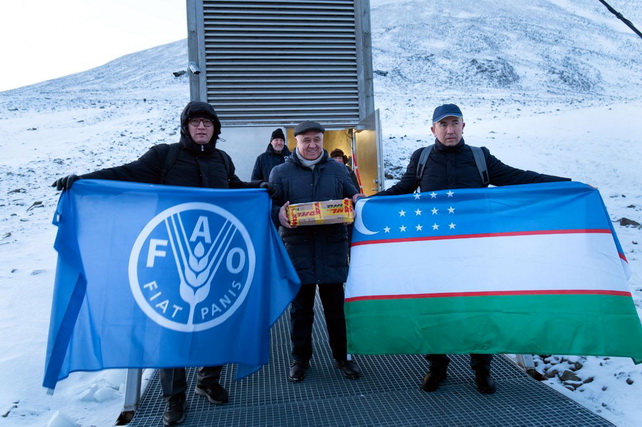
Uzbekistan Contributes Seeds to the Svalbard Global Seed Vault
Uzbekistan Contributes Seeds to the Svalbard Global Seed Vault
Tashkent, Uzbekistan (UzDaily.com) — Samples of ancient and local agricultural seeds from Uzbekistan have been deposited in the world’s largest and most secure seed repository — the Svalbard Global Seed Vault in Norway.
This initiative was carried out as part of a collaboration between the Research Institute of Plant Genetic Resources under the National Center for Knowledge and Innovations in Agriculture, the Food and Agriculture Organization of the United Nations (FAO), and the Nordic Genetic Resource Center (NordGen).
The transfer of seeds marks a significant step in Uzbekistan’s efforts to preserve the genetic diversity of its crops and strengthen food security. The vault received samples of over 20 local varieties of melon, watermelon, tomato, pepper, eggplant, carrot, onion, and wheat. Among them is the valuable traditional wheat variety “Kayraktash,” known for its high adaptability and historical significance.
“This project demonstrates Uzbekistan’s commitment to preserving plant biodiversity and contributing to global food resilience. Protecting the gene pool is an investment in future generations,” the Research Institute of Plant Genetic Resources noted.
The Svalbard Global Seed Vault, located in Arctic permafrost and maintained at –18°C, is the world’s largest backup seed bank. It currently stores more than 1.1 million seed samples from all continents. The vault operates under a tripartite agreement between the Government of Norway, the Crop Trust organization, and NordGen.
Cooperation with the FAO and NordGen further underscores Uzbekistan’s active participation in global programs for gene pool conservation and sustainable agriculture development.
The deposition of seeds in Svalbard reinforces Uzbekistan’s position as an engaged member of the international scientific community and a reliable partner in the field of food security.